1. Never Kill Without a Reason
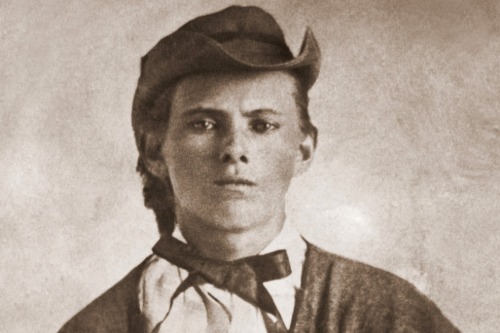
Despite what Hollywood might show, outlaws didn’t just gun people down for fun. Killing someone, especially without a clear reason, could bring unwanted attention from lawmen and bounty hunters. Many outlaw gangs had an understanding that violence was a last resort, used only in self-defense or during a job gone wrong. Killing recklessly made a person a loose cannon, and no crew wanted that liability.
Some outlaws, like Jesse James, were seen as folk heroes because they robbed from the wealthy but avoided unnecessary bloodshed. Others, like Billy the Kid, had a reputation for being deadly, but only when provoked. Even notorious figures like Butch Cassidy preferred to use intimidation over violence whenever possible. In the outlaw world, killing for no reason could turn allies into enemies and bring the entire gang down.
2. Respect Your Allies—Or Else
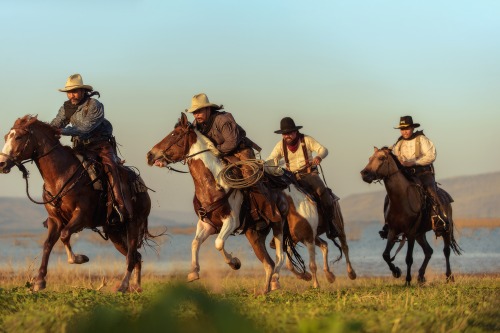
Loyalty was everything in the outlaw world, and betrayal was a death sentence. If you turned on your crew, you weren’t just risking exile—you were risking your life. Many gangs had an unspoken rule that traitors would be dealt with swiftly and brutally, ensuring no one got any ideas about selling out for a quick buck. In a world where trust meant survival, sticking together wasn’t just about friendship—it was about making it through another day.
Even in legendary gangs like the Dalton Gang and the Wild Bunch, members who crossed the line rarely got a second chance. Outlaws relied on each other for food, shelter, and backup in a fight, so turning against your own was the ultimate sin. Sometimes, outlaws would take revenge on a snitch even after they were captured or went into hiding. It wasn’t just about punishment—it was about sending a message to anyone else thinking of betraying the code.
3. Never Rob from the Poor
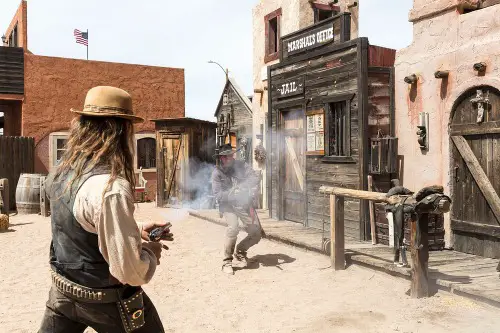
Many outlaws wanted to be seen as rebels fighting against corrupt banks and the rich, not as common criminals. Robbing poor farmers or small-town folk wouldn’t just damage their reputation—it could turn an entire community against them. If townspeople hated an outlaw, they’d be more likely to help lawmen track them down or refuse them shelter. By stealing from the rich and leaving the working class alone, outlaws could gain public sympathy and even support.
Jesse James and his gang, for example, targeted banks and railroad companies, avoiding small-time businesses when they could. Some outlaws even went a step further, handing out stolen money to struggling families to build goodwill. This Robin Hood-style approach made them legends rather than mere criminals. It wasn’t just a moral choice—it was smart strategy.
4. Hide Out in Friendly Territory
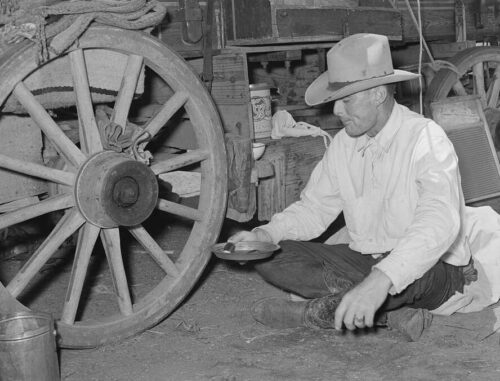
The best way for an outlaw to stay ahead of the law was to have safe places to disappear. Whether it was a hidden cave, an abandoned shack, or a sympathetic town, finding friendly territory was key to survival. Some outlaws even formed alliances with certain communities, offering protection in exchange for food and a place to stay. Others relied on remote locations where lawmen wouldn’t bother chasing them.
Butch Cassidy and the Sundance Kid had the Hole-in-the-Wall hideout, a near-impossible-to-reach spot in Wyoming. Billy the Kid used the vast deserts of New Mexico to his advantage, slipping between small ranches where people were willing to help him. These hideouts weren’t just about rest—they were about disappearing completely when the heat was on. A good hiding spot could mean the difference between life and a noose.
5. Don’t Get Too Greedy

Outlaws who got too greedy didn’t last long—either the law caught up with them, or their own crew turned against them. The smartest criminals knew when to take their winnings and lay low, rather than pushing their luck too far. Pulling off too many heists in a short time made them predictable, increasing the risk of capture. Spacing out robberies, changing locations, and not taking more than they could carry kept them in business longer.
This was one of the reasons Butch Cassidy’s gang stayed active for so long—they planned their hits carefully and knew when to disappear. On the other hand, reckless criminals who kept going until they were caught, like the Dalton Gang, met bloody ends. Greed also caused tension within gangs, as members fought over shares and resources. In the outlaw world, knowing when to walk away was just as important as knowing how to steal.
6. Always Have an Escape Plan
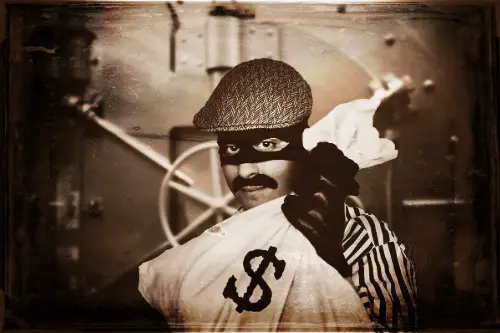
No outlaw went into a job without knowing how they were getting out. Whether robbing a train, bank, or stagecoach, a clean getaway was just as important as the heist itself. The best criminals planned multiple escape routes in case something went wrong. Having fresh horses stashed nearby or allies waiting to create a distraction often made the difference between freedom and a jail cell.
Jesse James was notorious for planning his getaways as carefully as his robberies, always having a backup plan. Butch Cassidy’s gang was known for using relays of fresh horses to outrun lawmen over long distances. Outlaws who didn’t plan ahead, like the Youngers during the disastrous Northfield bank robbery, ended up dead or captured. A good escape plan wasn’t just smart—it was survival.
7. Take Care of Your Horse

For an outlaw, a horse was more than just a ride—it was their lifeline. A slow, tired, or injured horse could mean getting caught, so taking care of their animals was a top priority. Outlaws were known to swap out horses frequently to keep fresh ones available, especially during a big job. Many even had favorite horses they trusted above all others.
Butch Cassidy had a strong bond with his horses, always making sure they were well-fed and rested. Jesse James was said to have an exceptional eye for picking fast, sturdy horses. Some outlaws would even steal high-quality horses just to improve their odds in a chase. A well-treated horse could outrun a posse and save an outlaw’s life.
8. Never Drink Before a Job
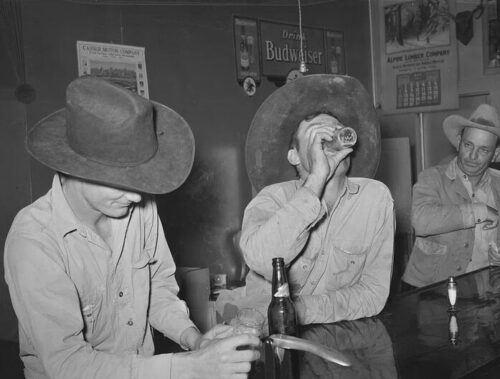
A drunk outlaw was a dead outlaw. Many gangs had a strict rule against drinking before a heist because it slowed reflexes and clouded judgment. A single mistake—stumbling, slurring words, or reacting too slowly—could get the whole crew killed or captured. While some outlaws were known for their love of whiskey, they usually saved the drinking for after a successful job.
Doc Holliday, despite being a gambler and heavy drinker, was known to stay sharp when it mattered. Outlaws who ignored this rule, like some in the Wild Bunch, often got caught because of reckless, drunken behavior. Even Billy the Kid, despite his wild reputation, was careful not to get too drunk when he was on the run. In the outlaw world, discipline mattered just as much as courage.
9. Never Leave a Partner Behind
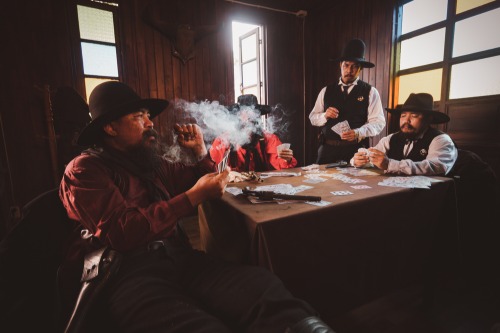
Outlaws lived and died by their loyalty to one another. If a gang member got injured or caught, the unwritten rule was to do everything possible to help them escape. Leaving someone behind wasn’t just heartless—it sent a message that you couldn’t be trusted. A gang that didn’t look out for each other wouldn’t last long, and no outlaw wanted to ride with someone who might abandon them in a fight.
Some of the most famous outlaw crews, like the Wild Bunch, had reputations for sticking together no matter what. When the Younger brothers were wounded and captured during the Northfield bank raid, their gang refused to leave them until it was absolutely hopeless. Even Jesse James made risky moves to break his men out of trouble when needed. In the lawless world of outlaws, loyalty often meant survival.
10. Hide Your Identity at All Costs
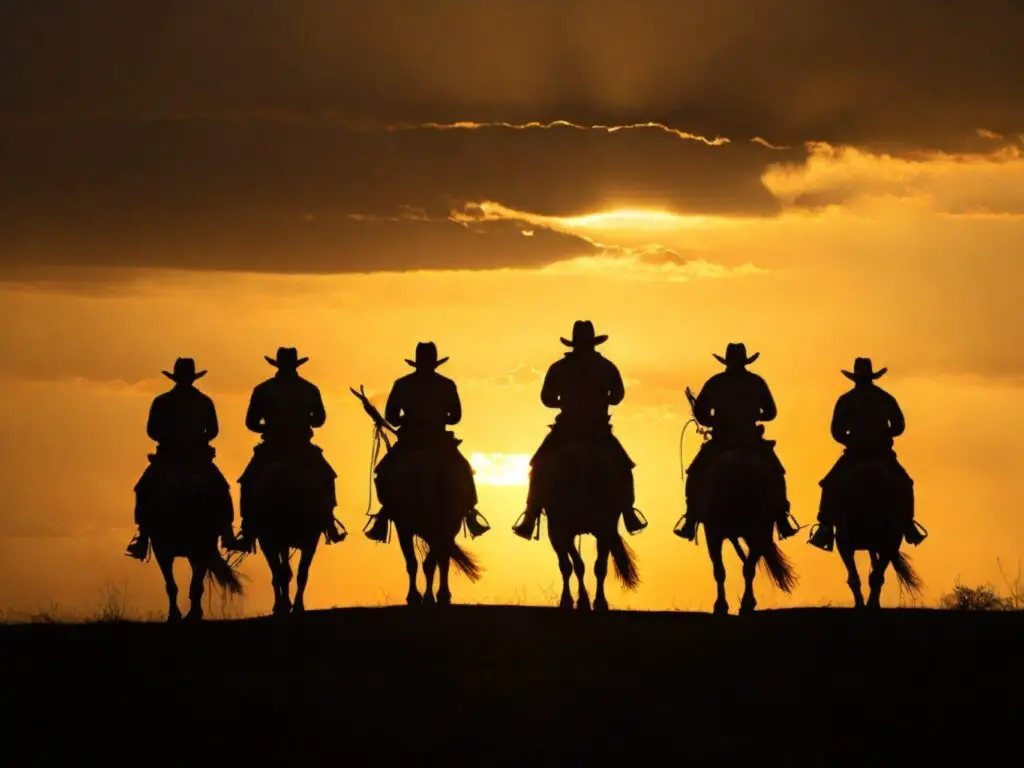
Being recognized could mean instant death or capture, so outlaws took serious steps to avoid being identified. Some wore masks or bandanas during robberies, while others used fake names or changed their appearances frequently. Many outlaws also avoided being photographed, knowing that wanted posters were spreading fast. The best criminals blended into the towns they passed through, looking like any other cowboy or rancher.
Jesse James and his gang often wore dusters and hats pulled low to hide their faces. Butch Cassidy went by several different aliases and even tried to live a quiet life under a false identity. Some outlaws grew beards, dyed their hair, or changed clothes often to throw off bounty hunters. If the law couldn’t recognize you, it was a lot harder to catch you.
11. Never Draw First—Unless You Have To

Despite the shootout legends, most smart outlaws didn’t go around picking fights. Drawing first in a duel or bar fight made you look like a hothead, and that kind of reputation could get you unwanted attention. The best gunfighters waited for their opponent to make a move first, giving them the legal upper hand if there were witnesses. If the law had to investigate, they’d have an easier time claiming self-defense.
Doc Holliday and Wyatt Earp were known for their quick draw skills, but they rarely fired first unless forced to. Billy the Kid, despite being infamous, was often cornered into fights rather than actively seeking them out. Even Jesse James preferred intimidation over gunplay whenever possible. In the outlaw world, shooting without cause could make you an easy target for revenge.
12. Die Before Surrendering
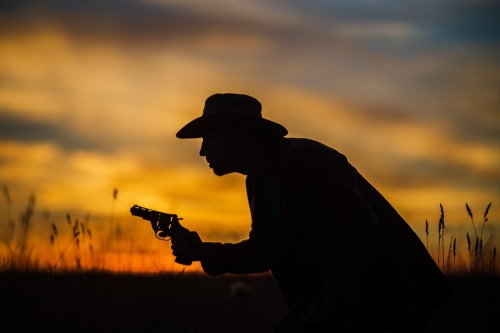
For most outlaws, prison was worse than death. Getting captured usually meant torture, a public hanging, or a lifetime in a dark, rat-infested cell. Many preferred to go down in a hail of bullets rather than be taken alive, earning them legendary last stands. The idea of “never surrendering” became a core part of the outlaw identity, making them seem larger than life even in death.
When the Wild Bunch was cornered in Bolivia, Butch Cassidy and the Sundance Kid supposedly chose to shoot it out rather than be captured. Jesse James was famously betrayed by one of his own men, but had he seen it coming, he likely would have fought to the death. Even Bonnie and Clyde, decades later, refused to give up and were gunned down in a brutal ambush. In the outlaw code, going out on your feet was better than rotting in a cell.


